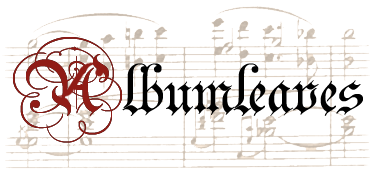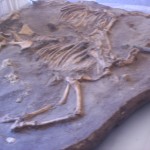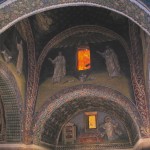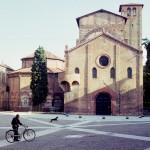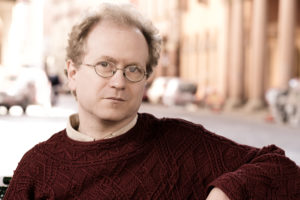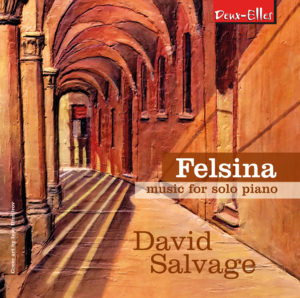Robert Schumann zum 154. Todestag.
Clara describes her visit to Robert in the Endenich asylum two days before his death.
Johannes [Brahms] saw him and, together with the doctor, begged me not to go to him, put it in the light of a duty to my children not to upset mysel thus, etc. So I traveled back without having seen him. But I could not stand it long, the pain, the longing for him, ah, to have only a glance from him, to let him feel my nearness–I had to go, and on Sunday the 27th I traveled there again with Johannes. Between 6 and 7 that evening I saw him. He smiled at me, and with a great exertion–for he could no longer control his limbs–put his arm about me–I will never forget it. That embrace I would not trade for all treasures. My Robert, that was the way in which we had to see one another again; with what difficulty I had to find my way to your beloved features; what an anguished look!
Torn from me more than two and a half years ago, without a farewell, how much I had on my heart. And now I lay quietly at his feet, hardly daring to breathe, and only now and then receiving a glance, clouded indeed, but so unspeakably mild.
Everything about him was so sacred to me, the air which he, the noble man, shared with me. It seemed that he kept talking much with spirits, could not long stand anybody about him, which made him uneasy; but one could no longer understand him. Only once did I catch “my.” Surely he wished to say “Clara,” for at the same time he gave me a friendly glance; then once more, “I know”–probably “you.”
–trans. Robert Schauffler; Florestan, p. 261.
